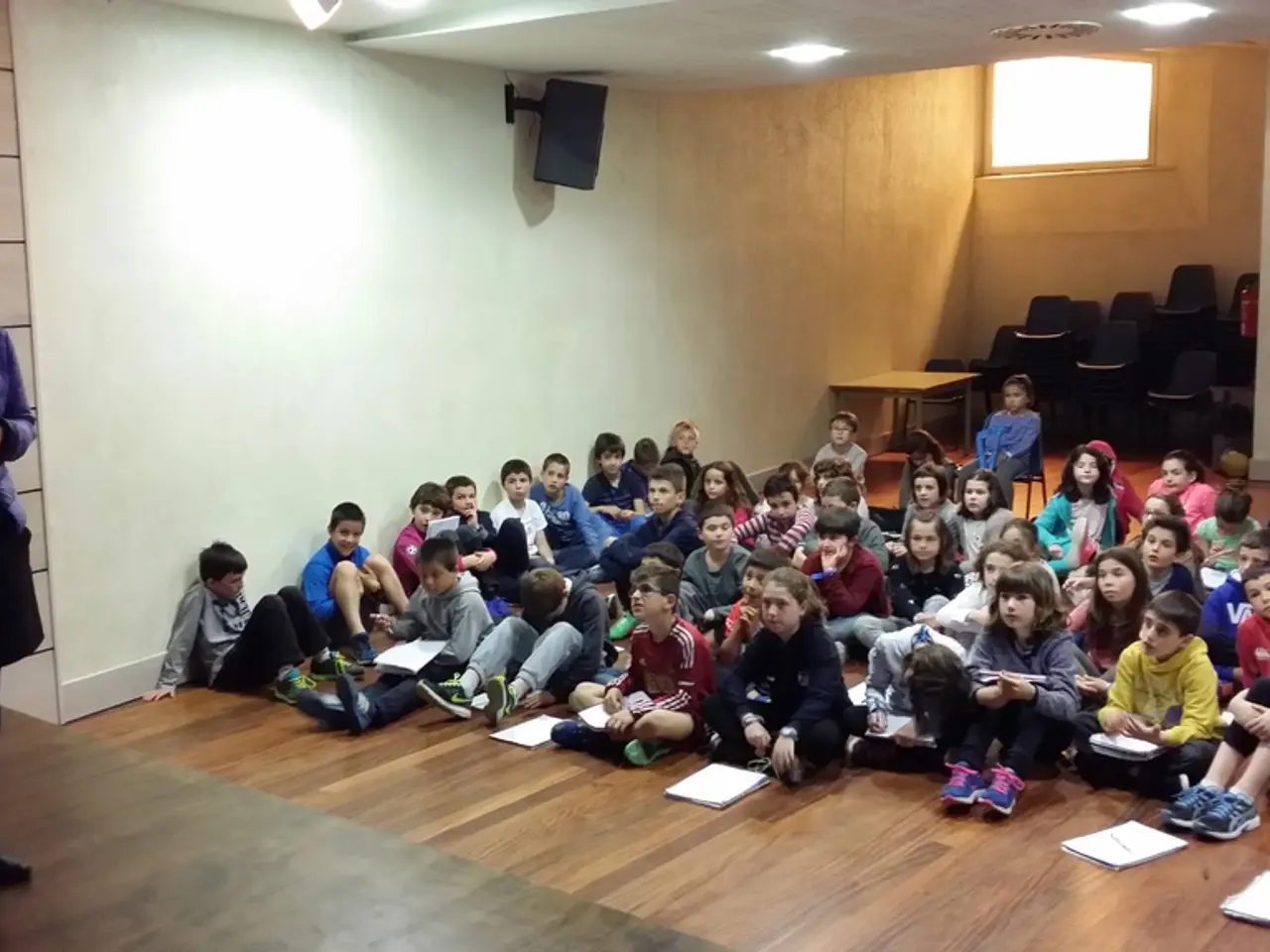Study Finds AI-Enhanced TV Characters Aid in Student Education, as Perceived by Harvard Researchers
In a groundbreaking collaboration between Harvard University, PBS Kids, and the popular children's show "Elinor Wonders Why," a study aimed to explore the potential of AI technology in enhancing learning during children's television viewing.
Led by Ying Xu, a professor at the Harvard Graduate School of Education, the study involved more than 200 young students aged 4-7. The team integrated AI-powered characters into the show, with the AI-powered version of Elinor taking centre stage.
The research aimed to understand how children might interact with and learn from these interactive videos in a more natural setting. Ying Xu is also exploring whether the benefits could extend to other STEM domains, such as computational thinking.
The study found that children learned more when they interacted with the AI-powered version of Elinor compared to just watching the show. The children were split into three groups: one watched the show, another interacted with an AI-assisted version of Elinor, and the third group interacted with Elinor asking questions and giving generic replies.
The difference between the three groups was smaller than expected, suggesting that larger effects might be observed when children watch multiple videos over a longer period of time.
PBS Kids has been embracing the use of AI, particularly non-generative AI, in their educational games and content featuring characters like Elinor from "Elinor Wonders Why" to enhance interactive learning experiences for children. Engaging in conversations with children, even when these interactions are with characters rather than a human partner, helps enhance their learning from television.
The study suggests that integrating AI chatbot technology into children's television shows could enhance learning. Ying Xu, the lead author of the study, believes that AI chatbot technology could help bridge the gap between children's screen time and caregiver availability.
To get precise information on the study design, participant demographics, measures used, and results, it may be necessary to consult Harvard's published research papers, PBS Kids press releases, or official communications related to the project.
As the world continues to embrace technology in education, this study offers promising insights into the potential of AI in enhancing learning experiences for young students.
- Children learned more when they interacted with the AI-powered version of Elinor compared to just watching the show, demonstrating the potential of AI technology in enhancing learning during children's television viewing.
- Ying Xu, the lead author of the study, believes that AI chatbot technology could help bridge the gap between children's screen time and caregiver availability, suggesting its ability to improve learning experiences when children have limited human interaction.
- PBS Kids is using AI, particularly non-generative AI, in their educational games and content to offer interactive learning experiences for children, as seen in the character Elinor from "Elinor Wonders Why."
- The study found smaller effects than expected when comparing the three groups (show-only, AI-assisted, and question-answer), indicating that larger benefits might be observed when children watch multiple videos over a longer period of time.
- Engaging in conversations with children, even when these interactions are with characters rather than a human partner, helps enhance their learning from television, as evidenced by the positive learning outcomes observed in the study involving the AI-powered version of Elinor.




